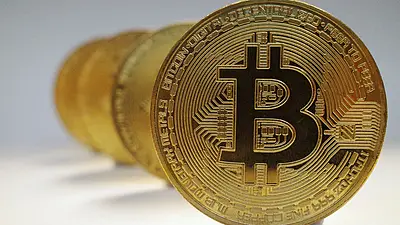Pulse of Information
Your source for the latest insights and updates.
Bitcoin: The Digital Gold Rush You Didn't Sign Up For
Discover the unexpected rise of Bitcoin and why this digital gold rush could change your financial future! Don't miss out!
What is Bitcoin and Why is it Called Digital Gold?
Bitcoin is a decentralized digital currency that enables peer-to-peer transactions over the internet. Unlike traditional currencies, it operates on a technology called blockchain, which is a transparent and immutable ledger that records all transactions. Since its inception in 2009 by an anonymous entity known as Satoshi Nakamoto, Bitcoin has gained significant traction as both a medium of exchange and a store of value. As a result, it has introduced the concept of cryptocurrency, paving the way for thousands of other digital currencies to emerge.
The term Digital Gold is often used to describe Bitcoin due to its limited supply, similar to that of gold. There will only ever be 21 million Bitcoins in existence, which makes it a deflationary asset. Investors view Bitcoin as a hedge against inflation and economic instability, similar to how gold has been perceived for centuries. Furthermore, Bitcoin's increasing adoption among institutional investors and its potential as a safe-haven asset have solidified this comparison, leading many to consider it a new form of wealth preservation in the digital age.

How to Navigate the Risks and Rewards of Bitcoin Investing
Investing in Bitcoin presents a dual-edged sword of potential risks and rewards. As the world's first cryptocurrency, Bitcoin has shown the capacity for remarkable returns, with many investors reaping substantial profits during bull markets. However, this high reward comes with an equally high risk, as the market is notorious for its volatility. For those considering entering the world of Bitcoin investing, it is essential to conduct thorough research and establish a clear investment strategy. Understanding the technology behind Bitcoin, its market trends, and the regulatory environment can significantly influence investment outcomes.
To successfully navigate the risks associated with Bitcoin investing, consider implementing the following strategies:
- Diversification: Don’t put all your eggs in one basket. Spread your investments across various cryptocurrencies and other asset classes to mitigate risk.
- Dollar-Cost Averaging: Invest fixed amounts regularly rather than a lump sum to reduce the impact of market volatility.
- Stay Informed: Keep an eye on market developments, news, and regulatory changes that can affect Bitcoin’s value.
Is it Too Late to Join the Bitcoin Gold Rush?
The question of whether it is too late to join the Bitcoin gold rush has become increasingly common as more people recognize the potential of cryptocurrencies. In 2023, Bitcoin has established itself as a significant player in the financial market, often likened to digital gold. Despite the volatility, many investors believe that there are still opportunities to profit from investing in Bitcoin and other cryptocurrencies. Early adopters have certainly seen substantial returns, but the landscape is still evolving, presenting new avenues for investment.
Moreover, the adoption of Bitcoin continues to grow, with institutions and companies integrating it into their payment systems. This ongoing mainstream acceptance suggests that the Bitcoin gold rush is far from over. While it may seem daunting to jump into a market that has experienced such rapid growth, potential investors should consider that timing the market perfectly is nearly impossible. Instead, focusing on long-term investment strategies and educating oneself about cryptocurrency could still yield significant rewards in the coming years.